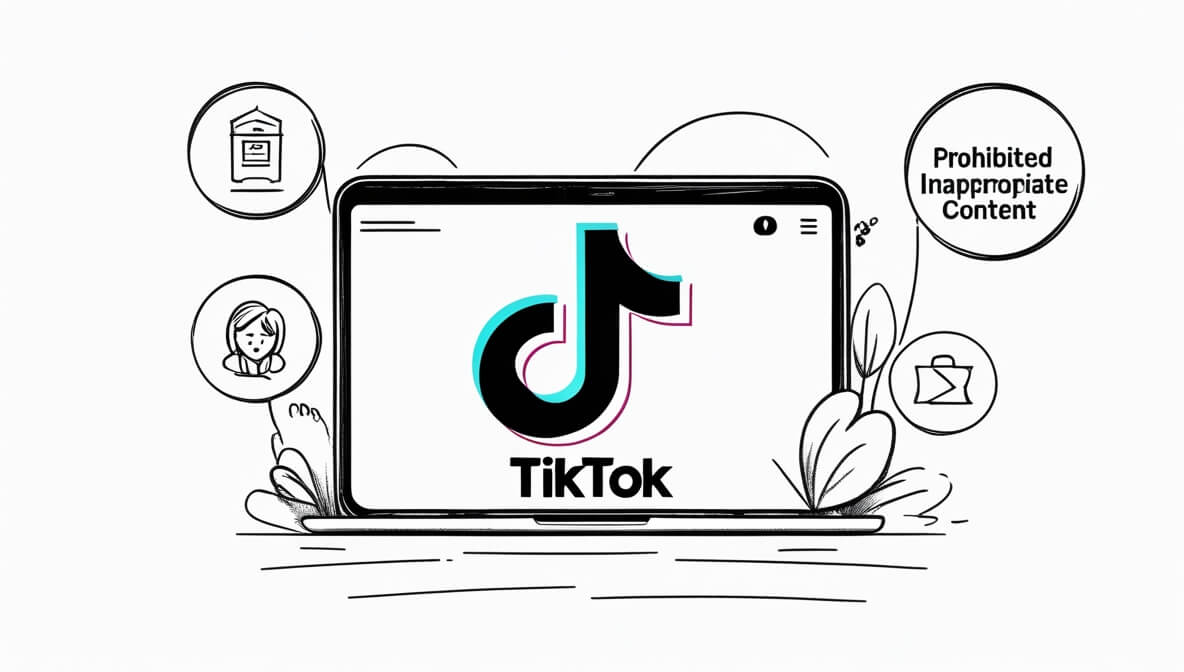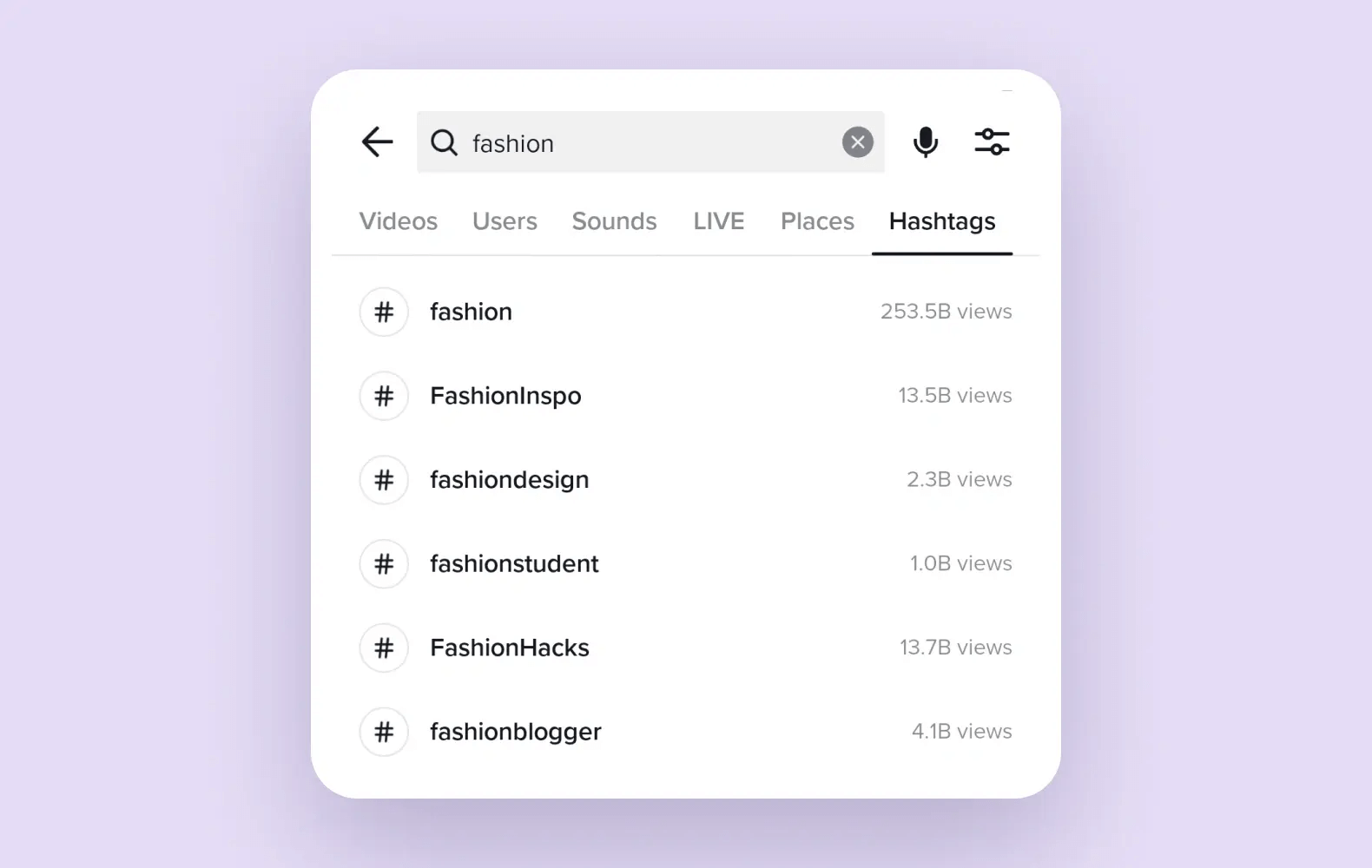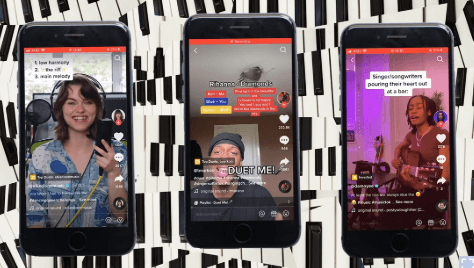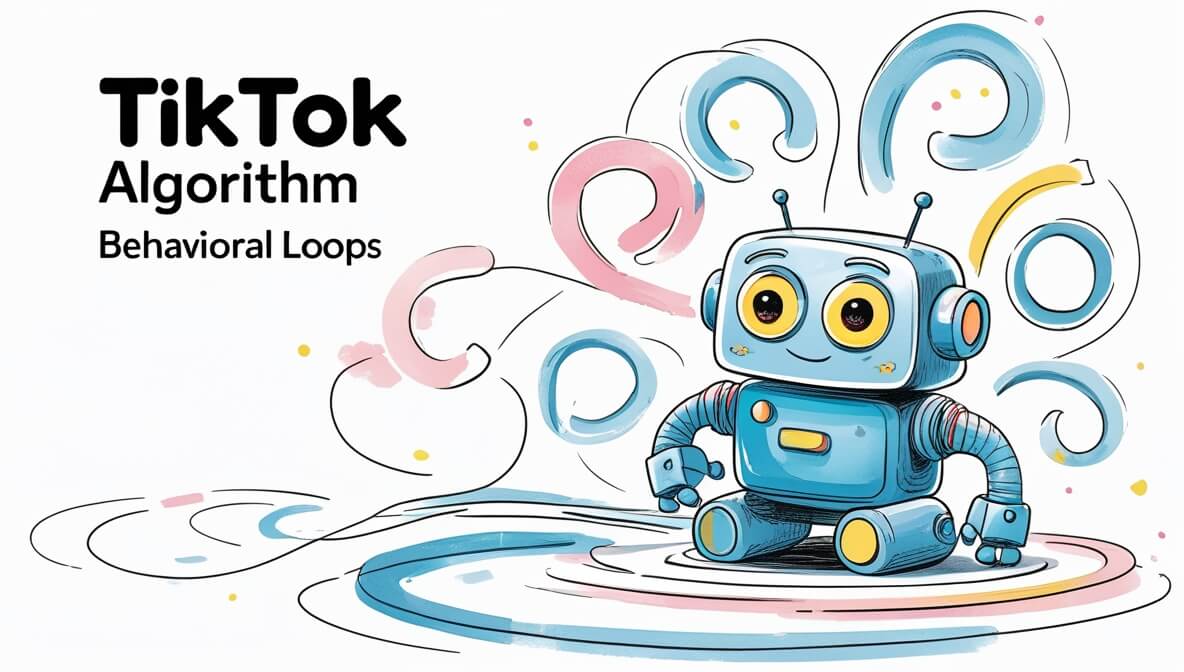ClevGuard Support: Monitor Devices with Others' Permission.
TikTok has become a creative outlet and entertainment hub for millions of users worldwide. However, alongside its entertaining videos, there are concerns about the presence of NSFW (Not Safe for Work) content, which includes explicit or inappropriate material unsuitable for younger audiences. Despite TikTok's policies, loopholes still exist, allowing such content to spread. This article dives into how NSFW content exists on TikTok, spreads, and—most importantly—how parents can take proactive steps to protect their children effectively.

Table of Contents
1. Does TikTok Have NSFW Content?
TikTok has clear Community Guidelines prohibiting nudity, sexual content, and other explicit material. These rules are enforced through a combination of AI moderation and human reviewers. TikTok also has features like Restricted Mode to help filter inappropriate content.
Despite these efforts, NSFW content still surfaces on the platform . Clever users often bypass the system by disguising their material under seemingly harmless trends, hashtags, or creative edits. This issue is compounded by TikTok's algorithm, which occasionally pushes inappropriate videos to users based on subtle interactions.
- Manipulated Hashtags: Reports indicate that users often create or use disguised hashtags like "#spicycontent" or emoji-based phrases to share explicit videos.
- Alarming Statistics: According to a study by the Internet Watch Foundation, 44% of reports involving explicit content targeted younger users, showing TikTok's growing vulnerability in this area.
- Notable Incidents: In 2023, media reported cases where explicit videos using trending challenges garnered millions of views before removal. For instance, a popular fitness hashtag was hijacked to host adult content for weeks before being flagged.
These examples highlight the ongoing challenge for TikTok to maintain a safe platform, making it crucial for parents to step in.
2. How to find NSFW TikTok (To Protect Minors)
NSFW content spreads through sophisticated strategies that exploit TikTok’s features. Understanding these methods is key to preventing exposure.
A. Exploiting Trending Hashtags
Inappropriate content creators often piggyback on trending hashtags to increase visibility. For example, fitness, dance, or harmless-sounding tags like "#bodygoals" are sometimes misused to share explicit material.

- Example: Searching for a seemingly innocent hashtag can lead to a mix of appropriate and inappropriate videos, especially in regions where hashtag monitoring is weaker.
- What Parents Can Do: Regularly monitor trending hashtags your child follows and flag any that seem suspicious or unrelated to their usual interests.
B. Manipulating TikTok’s Music Trends
Music is a core part of TikTok’s culture, and NSFW creators exploit this by pairing explicit content with popular tracks. These videos may appear innocuous at first but contain suggestive visuals or hidden messages.

- Example: A popular remix might feature NSFW content when paired with provocative edits, making it harder to identify.
- What Parents Can Do: Pay attention to the songs your child’s videos include or interact with. Reviewing their “Liked Videos” section may provide insights.
C. Algorithm and Behavioral Loops
TikTok’s algorithm tailors content based on user engagement. If a user inadvertently watches or interacts with slightly suggestive content, the algorithm may recommend similar videos, unintentionally exposing them to NSFW material.

- Example: Watching one video under a hijacked hashtag could lead to more explicit suggestions over time.
- What Parents Can Do: Teach children to skip or report inappropriate videos immediately instead of watching them, as this interaction influences future recommendations.
3. How to Prevent Teens from Accessing NSFW Content on TikTok
While eliminating all risks is impossible, there are effective steps parents can take to significantly reduce exposure to inappropriate material:
1. Use Comprehensive Monitoring Tools —— KidsGuard for TikTok
KidsGuard for TikTok is specifically designed to help parents monitor their child’s activity on the platform.
Key Features:
- Activity Monitoring: View your child's TikTok browsing history, comments, and private messages in real-time.
- Screen Time Control: Set limits to prevent excessive TikTok usage.
- Privacy Protection: Monitor account settings and ensure your child's personal information is secure.
How It Helps:
- Parents receive notifications when inappropriate content is detected, enabling immediate intervention.
- Offers real-time monitoring to prevent harmful content from slipping through unnoticed.
Tips:
- Protecting children from NSFW content on TikTok is a priority for many parents. KidsGuard for TikTok helps by identifying inappropriate trends, monitoring hashtags, and detecting risky content. It empowers parents to take proactive steps, ensuring a safer and more age-appropriate TikTok experience for their children.
2. Educate Teens to Recognize and Avoid NSFW Content
Education is as important as technical tools. Open and honest conversations can help teens become aware of the risks and make smarter decisions online.
Key Points to Cover:
- Explain how NSFW content is often disguised under seemingly harmless hashtags or trends.
- Teach them how to use TikTok’s reporting features to flag inappropriate content.
- Encourage them to avoid interacting with or sharing suspicious videos, as it influences the algorithm.
Implementation Tip:
- Role-play scenarios where your child encounters inappropriate content, teaching them how to handle it responsibly.
3. Provide Proper and Age-Appropriate Sex Education
Comprehensive sex education helps children understand the nature of NSFW content and its consequences. When teens are informed, they’re better equipped to handle exposure to inappropriate material.
Why It’s Effective:
- Reduces curiosity about explicit content by providing factual information in a safe setting.
- Encourages healthy communication between parents and children about online safety.
Implementation Tip:
- Use resources like books, videos, or workshops tailored to your child’s age group to introduce topics gradually and appropriately.
4. Conclusion: Creating a Safer TikTok Experience for Teens
TikTok’s vibrant and creative platform offers many opportunities for entertainment and learning, but it also comes with risks. NSFW content remains a challenge despite the platform’s policies. By understanding how such content spreads and taking actionable steps like using tools such as KidsGuard for TikTok, educating teens about online risks, and providing proper sex education, parents can create a safer environment for their children.
The combination of proactive monitoring, open communication, and education can empower both parents and teens to navigate TikTok responsibly. With these strategies, your child can enjoy the fun side of TikTok without being exposed to harmful content.







